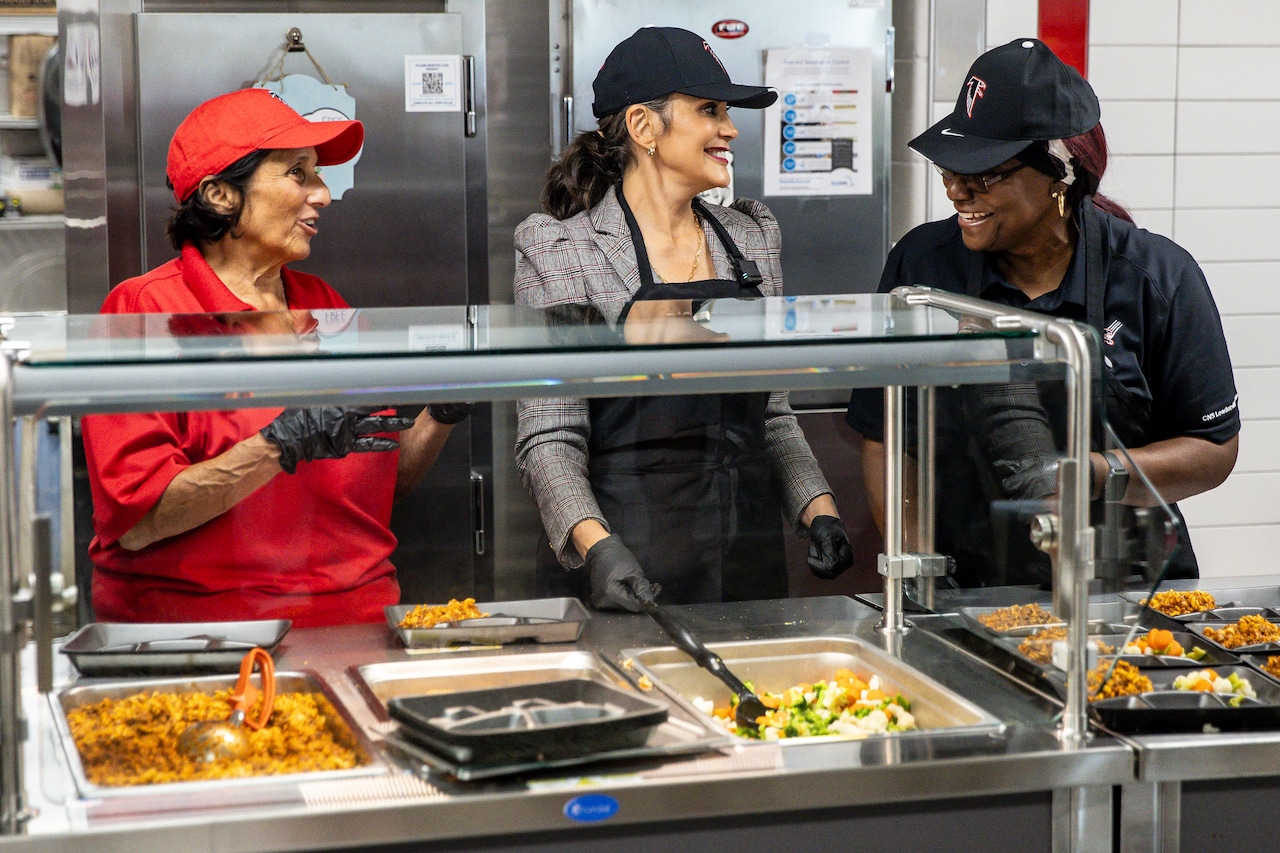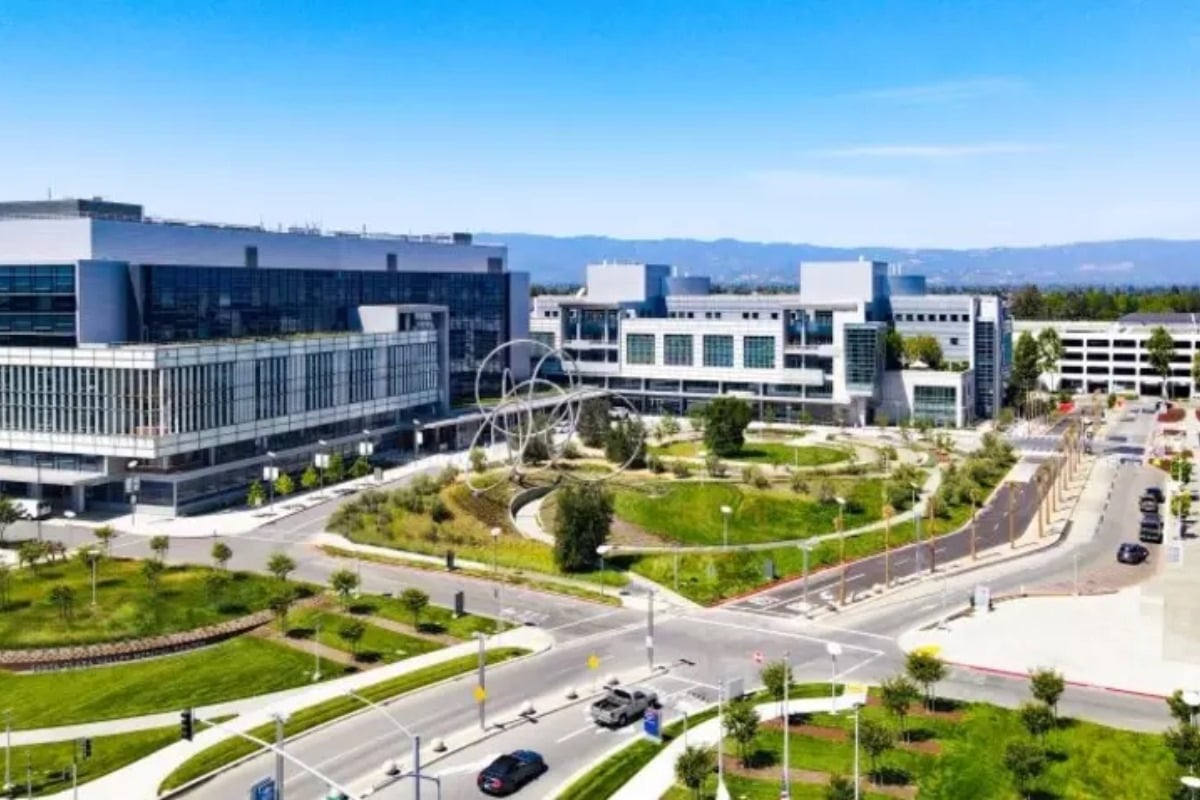
KENTWOOD, MI – Gov. Gretchen Whitmer urged state lawmakers to include free meals for Michigan public school students in the state’s 2025-26 budget, which has still not yet been finalized as an Oct. 1 deadline looms.
Whitmer advocated for the continuation of free school lunches during a Monday, Sept. 22, appearance at Kentwood’s Hamilton Elementary and Early Childhood Center, where she handed out lunches to second- and third-graders before speaking to reporters about the importance of the free meal program for Michigan families.
“When our kids are hungry, it’s nearly impossible to learn and to take in the material that is being taught at school,” Whitmer told reporters Monday. “Outside the classroom, free school meals has had countless benefits for our students’ social, mental and physical health.”
Michigan has funded breakfast and lunch for all public-school students, regardless of income, since the 2023-24 school year. The free school meals program is one of several programs supported with state-administered funds that hang in the balance this year with uncertainty around the state’s budget, which has not yet been finalized by state lawmakers.
“Michigan families the last few years have been able to count on these meals for their kids, breakfast and lunch,” Whitmer said. “This is at risk as we try to close out this budget.”
Whitmer said Democrats and Republicans are hard at work in Lansing to try and come to a consensus on a budget that will help improve Michigan schools.
Both the state Senate and House, and the governor’s office, have proposed increased spending in their education budgets. However, the House Republican proposal is vastly different from the other plans, as it would increase unrestricted funding to most schools by cutting billions in funding earmarked for student populations or specific programs, like the universal free breakfast and lunches program.
House Republicans argue this approach gives schools more spending freedom, while critics claim it would primarily benefit districts with fewer needs. Whitmer said she would reject the House budget if it came to her desk.
In an Aug. 7 memo to school leaders, State Superintendent Michael Rice said meals under current operations could be funded until Sept. 30. The Michigan Department of Education has “strongly” recommended that local districts prepare to finance free meals no matter the outcome of state budget talks as the school year starts.
Whitmer was tight-lipped about her administration’s contingency plans in case of a government shutdown as the deadline looms for Michigan’s divided Legislature to pass a state budget.
The governor did not share any new details when asked by reporters about what services or operations would be impacted by a government shutdown, which will happen in nine days if state lawmakers don’t pass a budget. Instead, the governor maintained she was confident lawmakers would be able to come together to get it done.
“It’s in all of our interests to avoid a shutdown, and that is something we’ve been at the table negotiating,” she said. “I believe that we will be able to do that, although any responsible governor at this juncture has a continuity of government plan, which we do. It is my hope that we don’t have to dust that off and deploy it.
“The Legislature has got nine days left to get this thing done. They can get it done.”
The annual process of agreeing on a state budget to allocate dollars for schools, state departments, local governments and more is usually done by July 1, which is the statutory deadline to pass a budget.
Lawmakers missed that deadline this year, which means the state government will shut down on Oct. 1 – the start of the state’s new fiscal year – if lawmakers fail to pass the 2025-26 budget for Whitmer to sign into law by that date.
The governor also declined to tell reporters what was the biggest holdup for both chambers to pass the budget. Budget negotiations between Whitmer’s office, the Republican-majority House and the Democratic-majority Senate have stalled this year amid funding and policy differences, lower revenue projections and a desire for a long-term road funding plan.
Michigan’s last two state shutdowns in 2007 and 2009, under Gov. Jennifer Granholm, were brief and effectively had no impact, lasting a combined six hours before lawmakers approved funding plans. Those shutdowns came amid budget deficits of more than $1 billion.
A state government shutdown would potentially see thousands of state employees temporarily laid off, with unions representing state workers saying these layoffs could bring government services to a crawl.
A shutdown could also harm the state’s credit rating as well as local governments and schools that depend on state payments.



